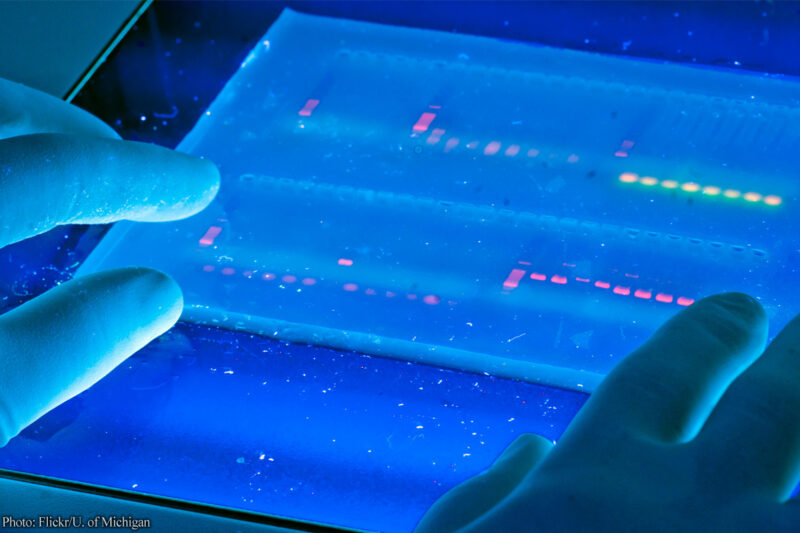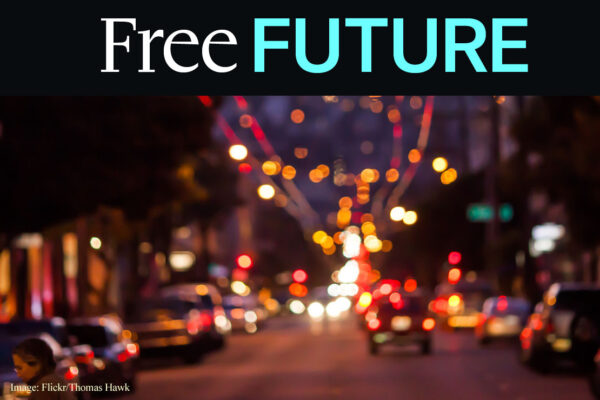
ProPublica has published an important report on local police forces building private DNA databases, in part by collecting “voluntary” DNA samples from people not suspected of any crime. Some of these departments are even asking juveniles to provide samples without informing or asking permission from their parents.
This is the problem with surveillance technologies: no matter to what extent their use may be justified and accepted in very serious situations, there will always be those who go nuclear on surveillance for the law enforcement equivalent of swatting gnats. In Melbourne, Florida, for example, police stopping kids for riding a bike without front and rear lights sometimes collect DNA samples from them. Unsurprisingly, a 15-year-old interviewed by ProPublica whose DNA was collected did not understand that he had the option of refusing the swab.
DNA is only the most powerful biometric that local police are collecting. As the New York Times reported last year, face recognition devices are also spreading among local police agencies. Portable biometric identification devices are being adopted by police departments around the nation, including devices that incorporate fingerprint readers and iris scanners as well as face recognition devices.
Several points about the use of biometrics by local police:
- Formal use restrictions needed. These technologies demand formal, legally binding restrictions on their use—regulations that ensure that biometric data on innocent people are not stored, and that limit their use to situations where the police have probable cause that a suspect has committed a crime. No one should have to identify themselves to the police if they’re not suspected of a crime—and certainly should not be asked to turn over their DNA.
- “Voluntary” participation should be limited. Use of these devices should not be based on the fiction that their acceptance by a citizen is “voluntary”—that individuals are free to refuse to cooperate with police officers asking them for a biometric reading. Police officers have significant power and discretion in their encounters with civilians and few such police requests will be uncolored by coercion. That is true even when an adult is involved who clearly knows their rights, let alone a juvenile. And it’s true even of a White middle-class person, let alone a low-income Black man who has plenty of reason to fear saying “no” to a police officer making a request that may, when actually delivered, sound an awful lot like a demand.
- Democratic control must be honored. We live in a democracy, and surveillance technologies must not be deployed without the knowledge and permission of city councils, county boards, or other equivalent democratically elected oversight bodies. Many surveillance technologies are purchased by local departments using DHS or DOJ grants that circumvent the local democratic budgetmaking process. And in at least one town profiled by ProPublica, the local DNA database is paid for by funds acquired through civil asset forfeiture, the obscene practice, bordering on banditry, that allows police agencies to seize money and valuables suspected (often tenuously) of being tied to crime, and then keep the funds for themselves.
The DNA dragnets described by ProPublica, as well as some of the face recognition and other biometric deployments that are spreading within American policing, are a reminder yet again that as surveillance technology becomes cheaper and easier to use, it is inevitably abused and over-used. Policymakers need to rein that in.



